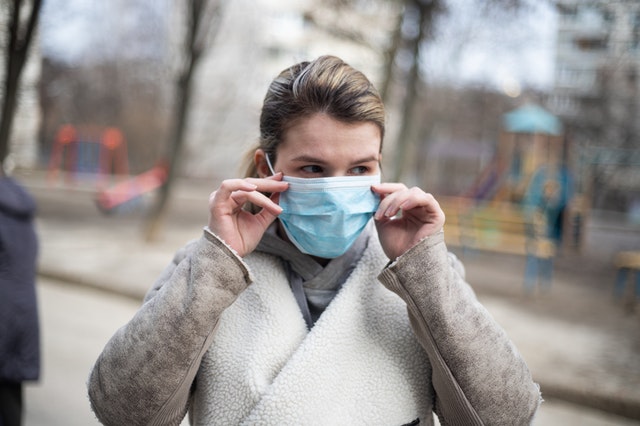Since March this year the world of business, and the world in general, has experienced massive change. The COVID-19 pandemic brought with it societal lockdowns and the closure of many businesses. Despite stories of easing restrictions in some countries, it will still be a long time until things return to normal; if they do at all!
With the stress of the Coronavirus on income and an uncertain future the question is; how will small businesses stay afloat during and after COVID-19? I will share stories of three countries and how they are managing this question. Despite varying levels of pandemic severity, geographic location, or national wealth businesses need to be creative and persistent to survive and even flourish in this situation.
Malaysia
Here in Malaysia people have not been quiet. The Movement Control Order took some time to adjust to, and almost all businesses were shut for a while. It goes without saying that the pandemic has taken a huge toll on all businesses. It is a positive thing, however, to see businesses trying their best to cater to their customers and stay afloat. Initially, the only shops open were grocers and supermarkets providing essential needs. Soon though, my wife found that some small businesses and wholesalers were using various online shopping apps. We were now able to order a wider range of groceries for much longer time periods, which in turn allowed us to stay indoors more. Soon enough restaurants began opening again and turned to services like GrabFood as well as Instagram to reach customers.
The ability to order restaurant food, as well as groceries, came at an important time for Malaysians during the month of Ramadan. The feeling of community usually experienced in Ramadan had been lost to the Coronavirus. Mosques were shut down, there were no night markets, and interstate travel was banned. Meaning that many Malaysians had to observe a month of warmth and familial gatherings alone and in isolation. At least with food delivery, citizens could enjoy meals with their close ones even if they could not go out. Many entrepreneurial individuals even created Ramadan favourite cakes and snacks from their own kitchens and personally delivered them to Malaysians. Some owners even claimed their businesses were selling more than normal because people were being forced to stay home.

Senegal
Senegal is a country that was in a state of emergency until June 2. The country has a relatively low number of infections with some sources claiming nearly 3,000 cases. However Senegal has its own unique social conditions that could exacerbate these numbers. Because of this Senegal has imposed a curfew from 9pm to 5am. This hasn’t stopped some from going that extra mile to do good for both their businesses and society. Due to the pandemic the shift from purchasing wet produce at the market to online shopping has intensified. Food delivery company Club Kossam was ready for this. They have seen online food orders, within the capital city Dakkar, double in recent times.
The government has also stepped in, introducing an online platform for small and large businesses to digitally continue their businesses. There have also been multiple initiatives to reduce the spread of COVID-19. A problem that is unique to Dakar is the number of homeless children on the streets. Their dependence is on the kindness of strangers as well as generous offerings of leftover food from restaurants. With restaurants closed and night curfews in place, this vulnerable group of society can also become potential carriers. Many community groups have stepped up to tackle this issue; going out and searching for these children as well as providing them with medical support and sometimes accommodation.
Strategies like this may or may not bring in the same amount of business as before the pandemic, but it’s what many small businesses need to consider to stay afloat during this uncertain time.
Ireland
On the other side of the world, citizens of the Republic of Ireland are using their ingenuity to tackle their unique problems. The story of Manna Aero is one such example of combining ingenuity with already existing social structures. This helps to cater to the needs of those worst hit by the pandemic. While originally targeting food deliveries to Irish university campuses the business has shifted their focus. The company now works with pharmacies to provide medicines to elderly citizens who are being told to stay at home. It’s not the only story of businesses turning to drones to deliver goods.
Pubs were one of the business groups affected by COVID-19 in Ireland. With no-one walking into pubs, business owners had to come up with ways to get out into the public. McKeever’s Bar and Lounge One, just outside of Dublin, put a spin on takeaway deliveries. They are home delivering beers, wines, and even bar snacks via drone. Strategies like this may or may not bring in the same amount of business as before the pandemic, but it’s what many small businesses need to consider to stay afloat during this uncertain time.
These are all examples of people using technology to address needs unique to their communities as well as maintain some flow of business. If you would like to read more about coping with the pandemic on a personal level, I have written about that too. I have also recently written a more recent commentary on travelling in general, in this soon to be post-COVID-19 environment. Check that out here!
The pandemic has shown that many political, business, and social structures need to be reviewed or improved. However, it has also shown that the existing structure allows for those who are willing to think out of the box to make something of themselves and stay afloat. It’s a sign that despite many things happening around us that are out of control we do have the ability to empower ourselves even in small ways.




